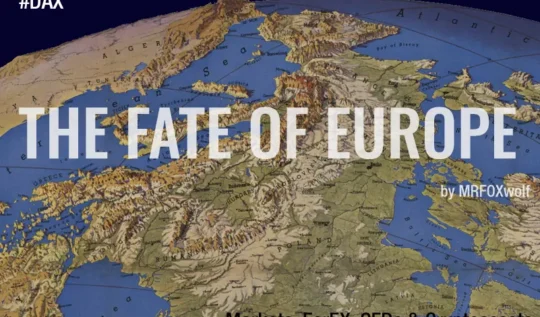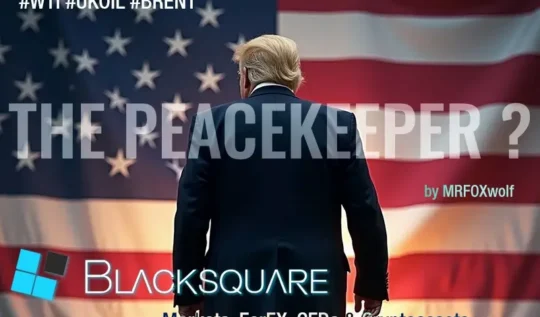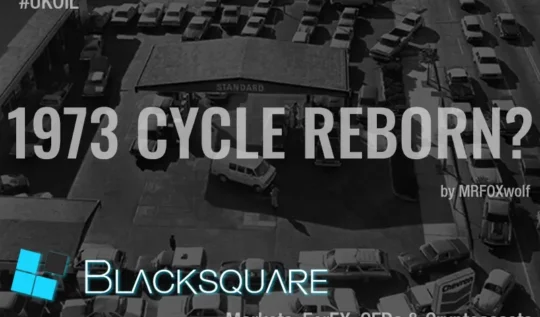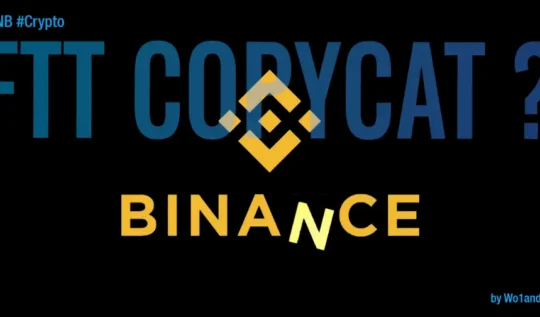I will not talk to you about the American economy, nor about what is happening at the moment, although you all know the situation to experience the euphoria in the markets. And even if this situation becomes even more challenging, whatever happens, they will know how to make us dream through yet another Hollywood production “how they managed to get out of it.” Welcome to the American Dream!!!
I will not tell you about the perspective from a Top Ten, and the 4 reasons to bet on the fall of stocks in an article published by David WAGNER (accompanied by comments as interesting as the substance of some paragraphs of the article) – you just need to read it while adding a context of scenarios even darker than dark. Moreover, there is no more extreme color, let alone nuances…
I will not tell you about the figures of unemployed people and the political speeches, politicized against the backdrop of election prospects, where they tell you stories that are hard to believe. Just add Dalida as background music, and all the experts end up looking like second-rate fools, and when the once predicted worst-case scenario happens, they won’t stop harping on with “I told you so”…. In any case, we know that the figures will continue to worsen and that the global economy has already started to slow down.
When you fill a glass halfway, there are two ways to describe it.
Europe is a very old continent.
Europe is not governed by incompetents, but let’s say that they all struggle to agree and after 58 years of unity in a “shaky zone,” filled with directives that don’t serve much purpose, they are simply running out of arguments to find solutions. Europe is not a zone of united states in conviction, but rather in a constant conflict of interests. I still remember 25 years ago, sitting in the university lecture halls, we referred to Europe as the “Old Continent.” And if 25 years ago we already called it “old,” how could we describe it today?
Of course, I’m extrapolating by pushing towards provocation and the utility of calling it that because it is the origin of civilizations that migrated in all directions, in contrast to the “New World” on the other side of the Atlantic. Even though I feel that the institutions with which it has been endowed since 1949 no longer serve any purpose.
There is a huge socio-cultural gap that, to this day, has only been observed without any willingness to change a way of life to improve it and become a better version of itself. For example, social norms are more open in the United States (favorably welcomed novelty, less formality, trust given to the young). While in Europe, success is measured based on merit and talent – by integrating a prestigious school or even a high-ranking government position – even if it becomes less true due to quotas; in the United States, the culture of entrepreneurship and risk-taking prevails. In other words, Americans see failure as an experience and every problem as a potential challenge.
The European education system encourages excellence, while the American system encourages risk-taking. Culturally, in the United States, there is an unparalleled capacity for execution that can’t be found anywhere else. Decisions are made very quickly at all levels and generate results very swiftly. There are very few hierarchies, everything is data-driven or objective-driven, and doesn’t lead to never-ending philosophical or opinion debates. Discussions are based on data and facts. Structures are more agile and fast-paced. Decisions are executed quickly, whether they are good or bad. Otherwise, it’s possible to start anew, but all of this provides clarity and makes everyone work in the same direction. Unlike in Europe, where too much time is spent discussing and debating.
Europe doesn’t know positive attitude. At least, it knows the terminology but doesn’t practice it! The focus is more on the negative (problems, errors) than on the positive (successes, advancements). This positive perspective is reflected in terms that could create excessive expectations. There is no trust in commerce where you have to start from scratch and build it up gradually, whereas in the USA, it’s the opposite.
Regarding work flexibility and valuing initiatives, layoffs are easy in the United States (“at will” is the rule), and companies can part ways with employees without having to justify themselves, which also makes hiring less risky. There’s no shame in leaving a company if it no longer needs you. And that’s deeply ingrained in their culture.
We are far from a flexible social system because all the post-war social gains still create controversy. The example of the “yellow vests” and all the repeated protests, the unions, and the right to strike as a form of protest is an example.
When unemployed, a French executive will look for a position of equivalent level, while an American executive might seek a lower-level position, betting on future results that allow for rapid advancement in the hierarchy. The job market is both more fluid and tougher in the United States.
The optimistic side of the American leads them to see what they have gained in sharing and collaborating. They are more into a “win-win” situation, which is the result of the conquest of the West, synonymous with freedom and abundance. The French, on the other hand, first see what they have to lose… And this is precisely what will make the difference in the years to come and could make the United States emerge even stronger from this crisis.
But then, what would be the advantages for the United States of having a strong currency, which would discourage exports and competitiveness?
Decrease in inflation: A strong currency lowers the cost of imported goods, allowing for lower prices for consumers. This leaves them more money for local spending.
Lower costs for some exporters: Exporters who import raw materials from abroad to produce their products pay less for these materials.
Acquisition opportunities: A company from a country with a strong currency can buy a similar company or supplier in a country with a weak currency. This allows the company to buy to take advantage of the strong currency in order to reduce costs.
Low financing costs for governments: With a strong currency, flows from outside the country often go into government bonds. These flows can reduce yields and allow the strong currency country to raise funds at more favorable rates in the markets.
Sense of wealth: While the rise in stock prices and real estate has a stronger wealth effect, a stronger currency also helps: citizens of a country with a strong currency can go on vacation abroad at a lower cost, which improves their quality of life.
But then, how can a country practice Quantitative Easing, knowing that it could be risky for several reasons?
Many analysts consider this policy risky for several reasons: it could lead to very high inflation and bubbles. It may prove to be ineffective. To stimulate the economy, there are other options, such as relaxing fiscal policy.
Nevertheless, it could support a stagnant economy and boost its activity during periods of uncertainty.
The advantage in this situation I’ve just described is the ease of adapting to and accepting an exceptional crisis situation that would pit a country with a single currency as a global hegemony against another representing a zone of conflicting fragments, some of which are deeply indebted…
Only time will tell…






